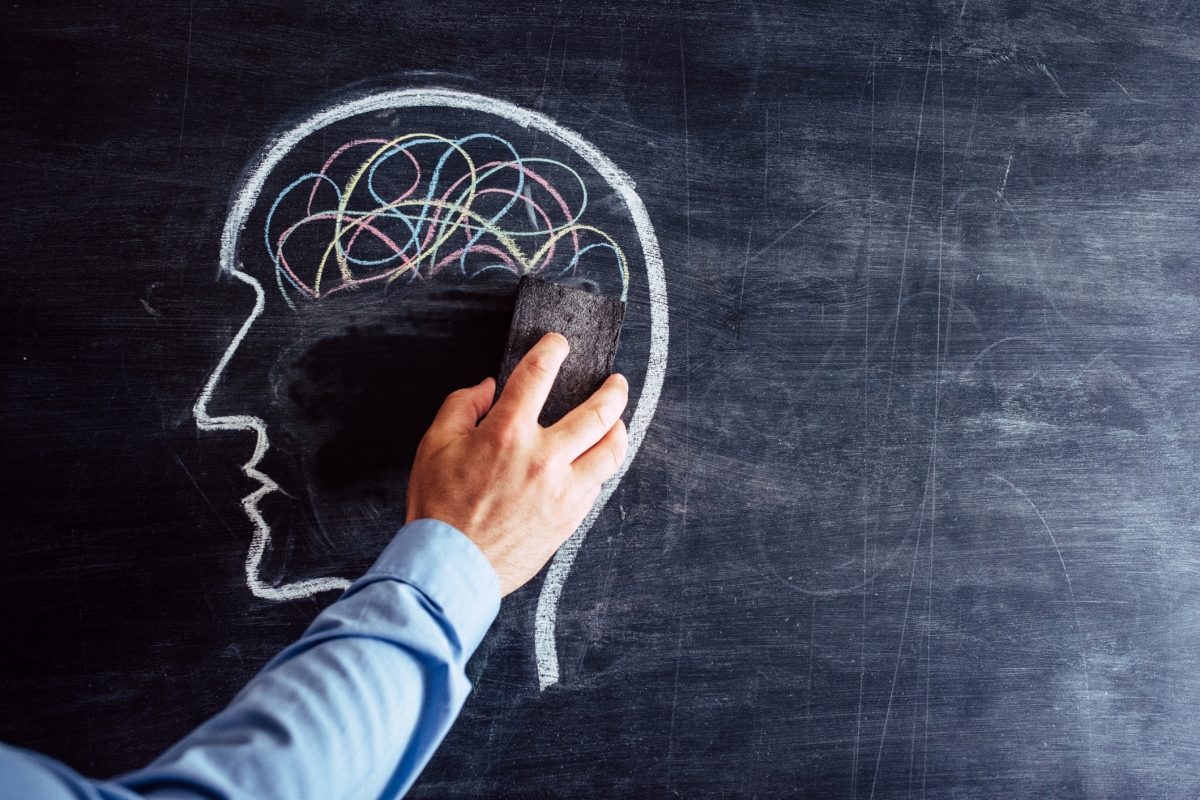Glutamate is the most abundant neurotransmitter in your brain. And while it is critical for many aspects of cognitive function and wellbeing, you don’t want to have too much of it because too much can kill neurons. Excess glutamate can also contribute to anxiety, insomnia, brain fog, and other cognitive problems.
Importantly, using too many stimulating nootropics can throw off your brain’s glutamate balance. To optimize your cognitive function, you need to address the root causes of glutamate imbalances and consider balancing out your nootropic protocol. This article will cover those root causes and ways to prevent excess glutamate.
This article is part of our 3-part glutamate series.
Part 1: What are glutamate neurotransmitters and their important roles?
Part 2: 5 signs of glutamate imbalance
Now, let’s dive in on how you can optimize your brain glutamate levels.
How To Balance Brain Glutamate vs. GABA Levels
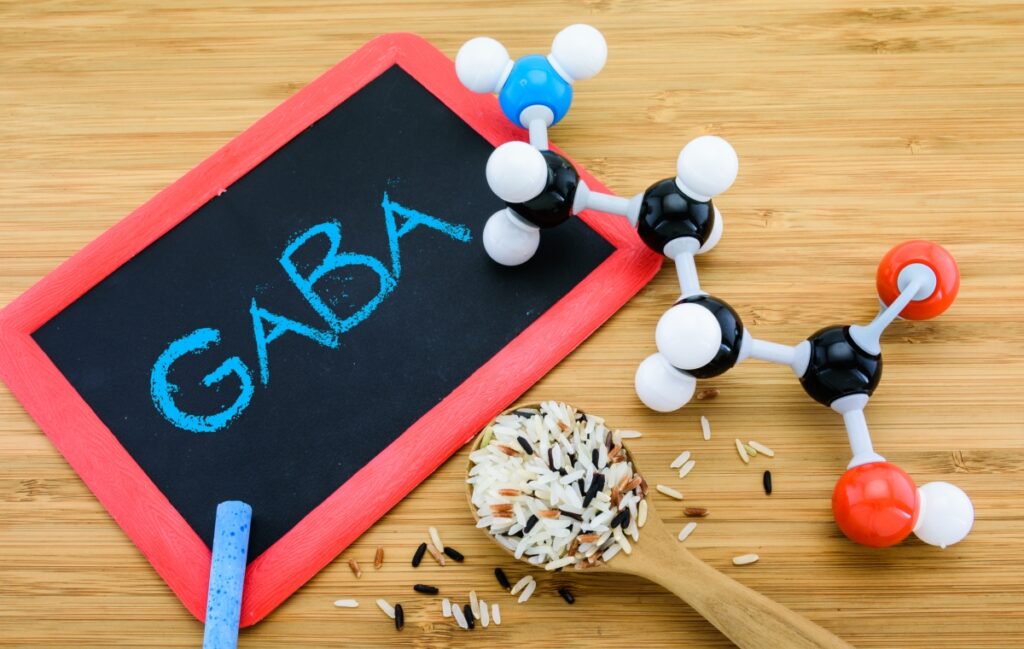
Balancing glutamate levels goes hand in hand with balancing GABA (gamma-aminobutyric acid). They are the most abundant neurotransmitters in the brain and work together to balance brain activity.
Excess brain glutamate typically arises from inflammation and danger responses that trigger neuronal deaths. Therefore, aside from directly increasing GABA, you should investigate the root causes of neuroinflammation and leaky blood-brain barrier. If you’re using nootropics, you’ll also need to consider balancing the stimulating ones with calming ones.
Reducing Neuroinflammation
As the name suggests, neuroinflammation is inflammation of the nervous system. It can come from neural injuries, blows to the head, toxins, or infections.
When you have too much inflammation and oxidative stress, your glutamate-releasing neurons and brain immune cells release glutamate. The excess glutamate outside of neurons also triggers more glutamate release, further amplifying the inflammation.
Unfortunately, the overwhelming amount of glutamate in the brain can also kill neurons. This is a key pathology of poor cognitive function, along with all neurologic and mental health disorders.

Because glutamate has opposing functions to GABA, GABA supplements or GABA-boosting supplements may help to an extent. However, these don’t fix neuroinflammation and oxidative stress.
The first key to balancing glutamate is to address neuroinflammation. Many nootropics also work by managing brain inflammation and oxidative stress. You also want to investigate your neuroinflammation diet and lifestyle root causes.
Work with a qualified practitioner to investigate and address the following root causes that may contribute to glutamate imbalances:
- Food-related inflammation and oxidative stress such as food allergies, nutrient deficiencies, and lack of dietary antioxidants
- Day to day stress, which may be managed with practices such as yoga and meditation
- Poor sleep quality and any issues that could be keeping you from your best sleep
- Mental health issues and traumas
- Infections or lingering inflammation from infections
- History of brain injuries, concussions, or head injuries
- Toxic exposures that can cause brain inflammation, such as toxic mold exposure
Most herbs and spices have anti-inflammatory properties. Ginger, turmeric, cinnamon, garlic, and rosemary are best for brain health and function. For example, turmeric contains a compound called curcumin, which has antioxidant and anti-inflammatory properties. Green tea also contains powerful antioxidant and anti-inflammatory substances.
Yoga and meditation, as well as exercising, can reduce neuroinflammation. These physical activities increase stress resilience and reduce stress-induced inflammatory mediators. Therefore, by managing stress, these activities can reduce neuroinflammation.
Eating The Best Diet For Your Brain
The best diet for brain function can be individual depending on your genetic makeup and health status. Some people may have the best brain function and glutamate balance on ketogenic diets. In contrast, others do better on higher-carb Mediterranean-style or even plant-based diets.
Currently, there is more literature supporting the Mediterranean diet for brain health than other diets. It uses ingredients and foods rich in antioxidants and has anti-inflammatory properties. For example, it is high in omega-3 intake with fish intake, reduces processed carbohydrate intake, and incorporates large amounts of fruit and vegetables.
However, the literature supporting ketogenic diets for brain and neurological health is also growing. Ketosis may help with many neurological disorders by reducing glutamate while increasing GABA and glutamine.
We believe that the best way to find out your healthiest diet is to try the diet and see how it feels.
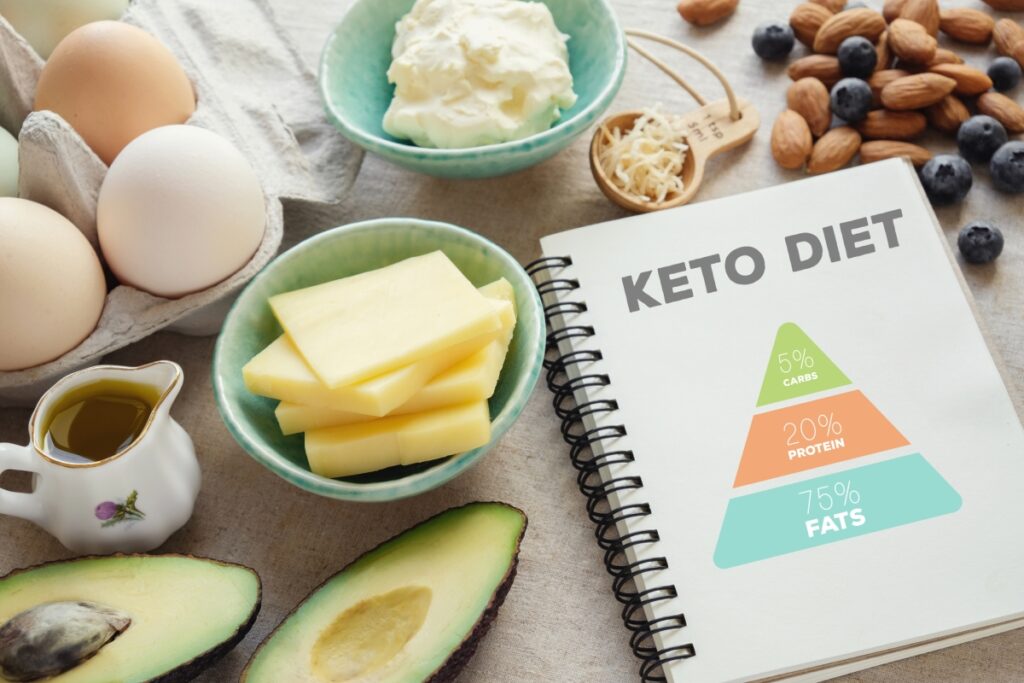
Repairing The Leaky Blood-Brain Barrier
The blood-brain barrier (BBB) is a physical barrier that protects the brain while allowing in certain nutrients and other building blocks through. If the barrier is disrupted, certain substances that typically can’t reach the brain will get to it, potentially causing inflammation.
An inflamed brain with compromised blood-brain barrier is called a “leaky brain.” It doesn’t mean that your brain is leaking out. Instead, it means that harmful substances and inflammatory signals can pass through the barrier into your brain, including too much glutamate.
Signs and symptoms of a leaky BBB may include :
- Brain fog
- Memory loss
- Anxiety, depression, and mood disorders
- Fatigue
- Headaches and migraines
- Seizure disorders
Inflammation in the body can also make your blood-brain barrier leakier.
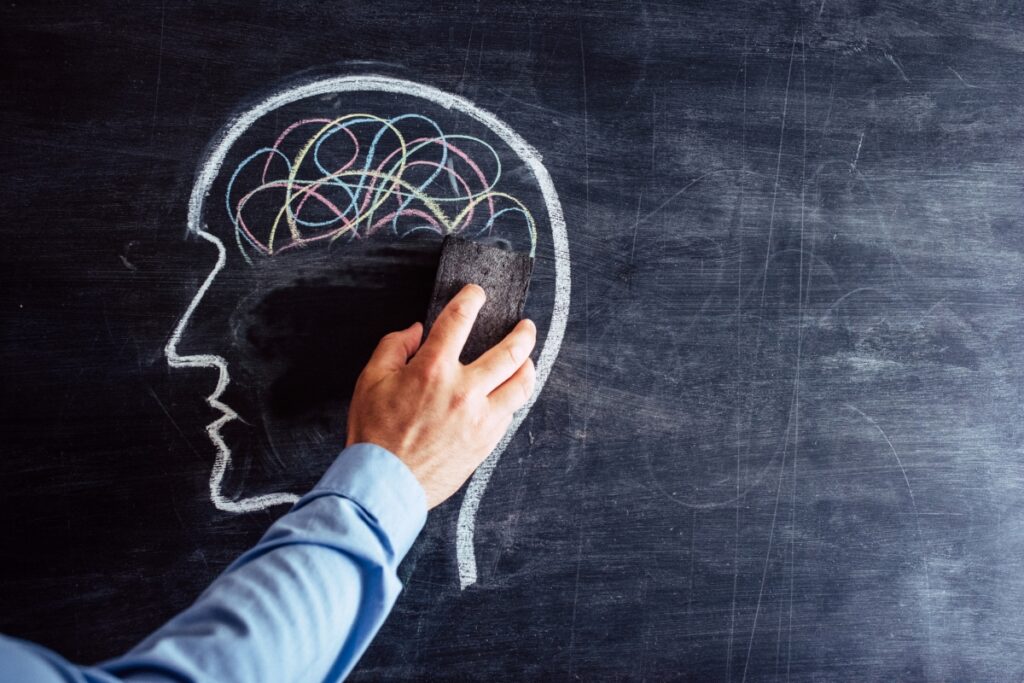
Ways to repair your BBB include :
- Improve Your Gut Bacteria With Probiotics And Synbiotic Supplements
Studies suggest that the gut microbiota communicates with the central nervous system. Gut bacteria can influence your brain by:
- Reprogramming immune cells
- Boosting cytokine release
- Generating bacteriophages (viruses that infect bacteria)
- Translocating from the gut into the bloodstream
- Crossing the BBB
Gut bacteria release substances and metabolites into the bloodstream that can easily cross the BBB or interact with barrier cells, affecting the central nervous system. Communication between the gut and the brain can affect cognitive functions and regulate stress-related behaviors. For example, your gut bacteria can make you feel sad and uneasy.
Therefore, we can repair BBB by improving gut microbiota with certain probiotics.
- Avoid Gluten And Alcohol
Food sensitivity can cause inflammation. For example, some people’s immune systems perceive food and dietary proteins as foreign invaders, resulting in gut mucosal barrier inflammation.
A leaky gut can impact other organ systems, causing a BBB to become leaky.
Since a diet rich in gluten and alcohol can lead to a leaky gut, it is no wonder that it can also lead to disrupted BBB. Therefore, if you’re trying to repair your BBB, consider avoiding gluten and alcohol.
- Consume Food With Omega-3 Fatty Acids, Vitamin B, Magnesium, and Vitamin D
Omega-3 fatty acids help maintain the integrity of the blood-brain barrier, especially in the aging population. These healthy fats inhibit the production of vesicles, or small bags that transfer minerals, vitamins, and even unwanted material across the blood-brain barrier.
B vitamins are also crucial for the BBB. Vitamin B1 deficiency disrupts the BBB, and supplementation can restore the BBB again. B12, B5, and B9 (folate) vitamins can also help reduce homocysteine and support BBB repair if you have high homocysteine.
Magnesium is also a mineral that exhibits protective benefits on BBB, especially in the presence of inflammation and infections. Multiple experimental models have indicated that magnesium sulfate protects the BBB integrity.
On the other hand, vitamin D is an effective anti-inflammatory and immune-balancing nutrient. Vitamin D receptors may be found in every cell in your body. It prevents leaky brain by lowering inflammation and reducing disruption of the blood-brain barrier.

- Use Herbs And Spices That Contain Curcumin
Curcumin preserves the BBB in rat and mouse models of brain injury from lack of blood flow, most likely because of its anti-inflammatory and antioxidant properties. Curcumin appears to increase enzymes that prevent blood vessel inflammation, so it reduces BBB damage and permeability.
- Get Enough Sleep
Sleep and sleep disorders have a negative effect on the blood-brain barrier. Sleep deprivation disrupts the connections between pericytes, cells that line the capillaries and venules, and brain endothelial cells. This disruption can lead to a leaky BBB.
Whereas, by promoting the removal of waste via the BBB, sleep aids in brain biological control.
- Try To Reduce Stress
Stress may impair the blood-brain barrier, which is one of the broad impacts of such stressors on brain function.
- Manage your homocysteine levels

Homocysteine is a neurotoxic and inflammatory amino acid generated by methionine metabolism.
It can damage neurons leading to cognitive decline, depression, and memory loss in humans. Homocysteine deficit, as well as a lack of folate and vitamin B12, can disrupt certain metabolic pathways, causing calcium influx, abnormal protein buildup, cell death, and neuronal death.
The negative effect of homocysteine may potentially be mediated via glutamate receptor subtype activation. Folate, glutamate receptor inhibitors, and different antioxidants can all help to inhibit homocysteine’s neurotoxic effects.
By repairing the barrier with certain supplements, such as vitamin B12, B5, and folate, you can improve glutamate balance and stop further damage.
Balancing Stimulating Nootropics With Calming Ones
Many nootropic users are, like our co-founders, high performers who always push the envelope on their physiology and cognitive function. Great stimulating nootropics allow you to perform at your maximal level if your brain has the resources for it.
For these nootropics to continue working, you need to also allow your brain to recover, replenish, and restore. You need to have periods of sympathetic and parasympathetic optimization.
This is why our individualized nootropic programs cycle between intensity and recovery. We take into account your brain’s need for balance so you don’t fatigue your receptors and continue to maximize your cognitive performance.
Also, our formulations balance excitatory nootropics with inhibitory ones so you don’t experience overstimulation. Stimulating nootropics boost awareness, banish brain fog, and make you more alert during your daily activities. On the other hand, calming nootropics prevent jitters and promote a calm focused flow. They can also help you destress and relax at the end of your day.
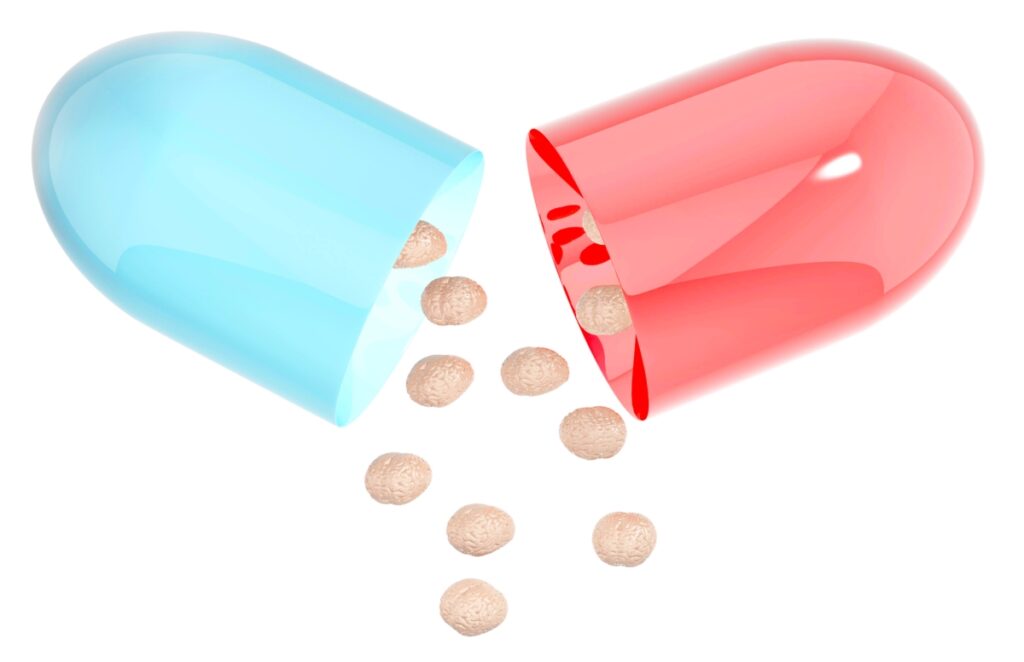
Supplements That Increase Glutamate Levels
Many supplements and foods, such as taurine and vitamin C, can help you increase your brain glutamate levels. The following ingredients can increase brain glutamate:
Glutamine
Glutamine is a conditionally essential amino acid. It is normally the most abundant amino acid in the blood. It is an abundant fuel source for certain cells and it is present in many dietary supplements and foods.
This amino acid plays a role in metabolism and cell functioning. In terms of brain and optimizing brain capacity, it serves as a glutamate precursor. It can also slowly cross the blood-brain barrier.
Consuming glutamine can increase levels of glutamate via a process called deamidation (a functional group of glutamine is removed or replaced). In this process, the enzyme glutaminase turns glutamine into glutamate.

L-theanine
L-theanine is a relaxing amino acid found only in green tea. In animals, L-theanine raises serotonin, dopamine, and GABA levels in the brain.
By removing glutamate from the synaptic cleft in the brain, L-theanine can help maintain the correct metabolism of the neurotransmitter glutamate. Furthermore, L-theanine significantly enhances the synthesis of glutamine, which increases levels of glutamate by deamination.
What’s Next?
Glutamate is a very important neurotransmitter in the brain, but it is important to keep it in balance. Aside from using nootropics, you want to work on reducing neuroinflammation and repairing the blood-brain barrier for the best brain function.
Nootopia personalized nootropic programs take into account individual glutamate imbalance. We also cycle between intensity and recovery so you can prevent excess glutamate and receptor burnouts. Visit us here and choose a product/products that will help you discover the best version of yourself.
References:
